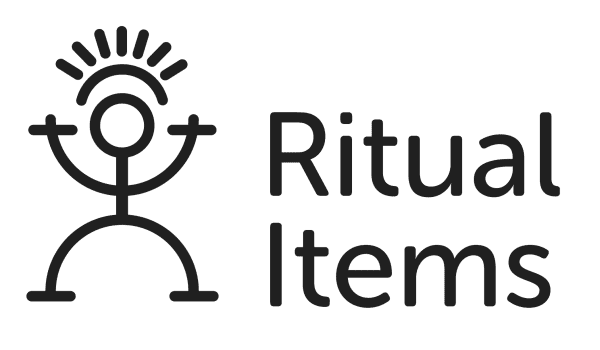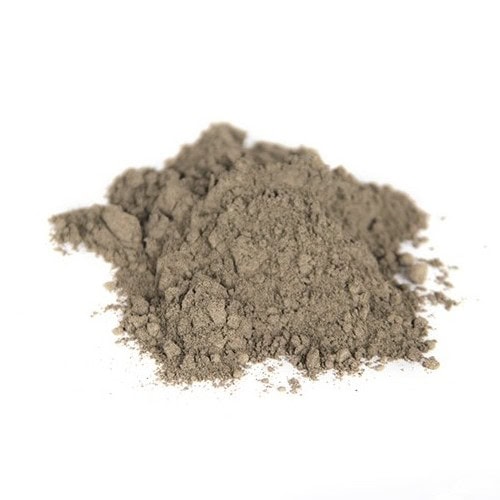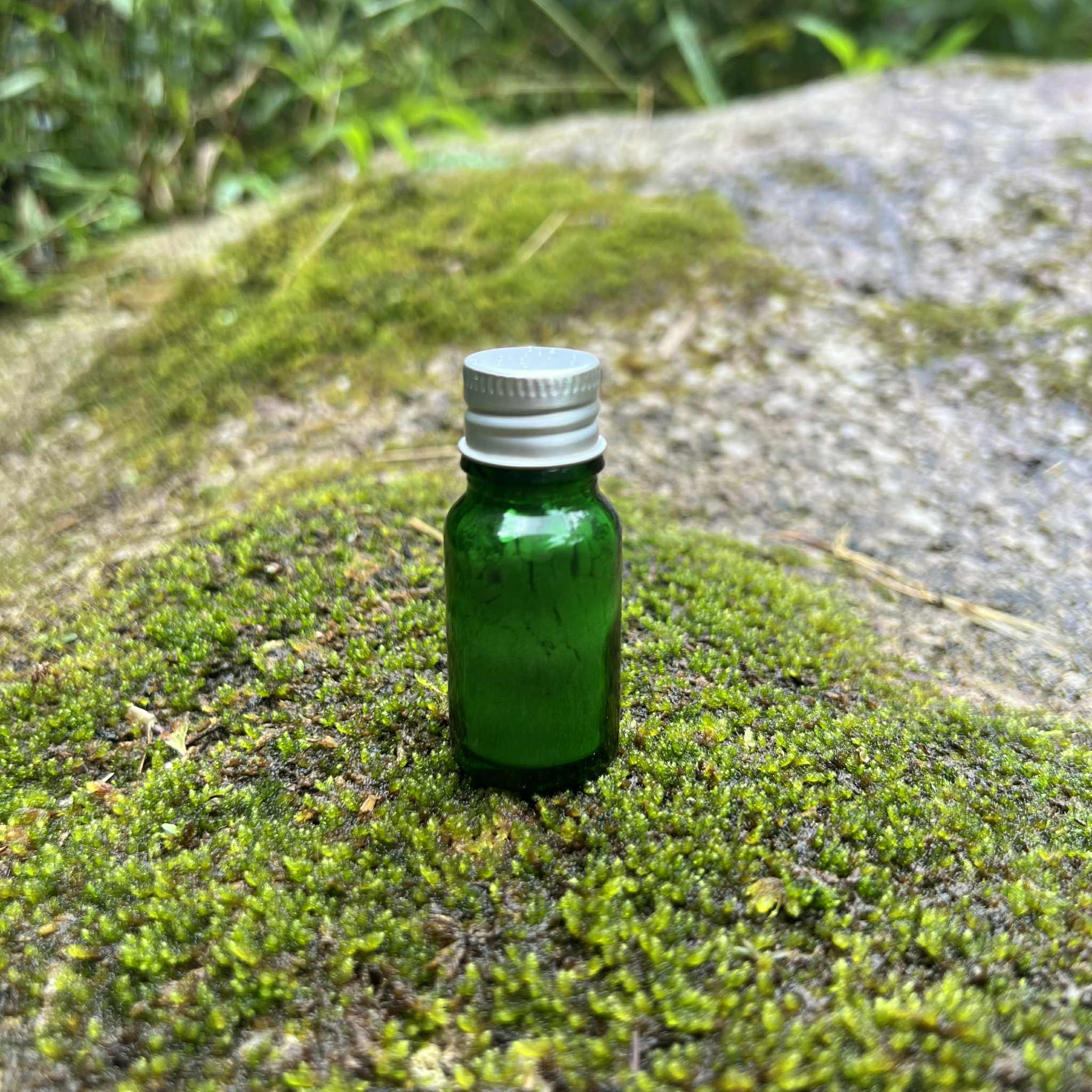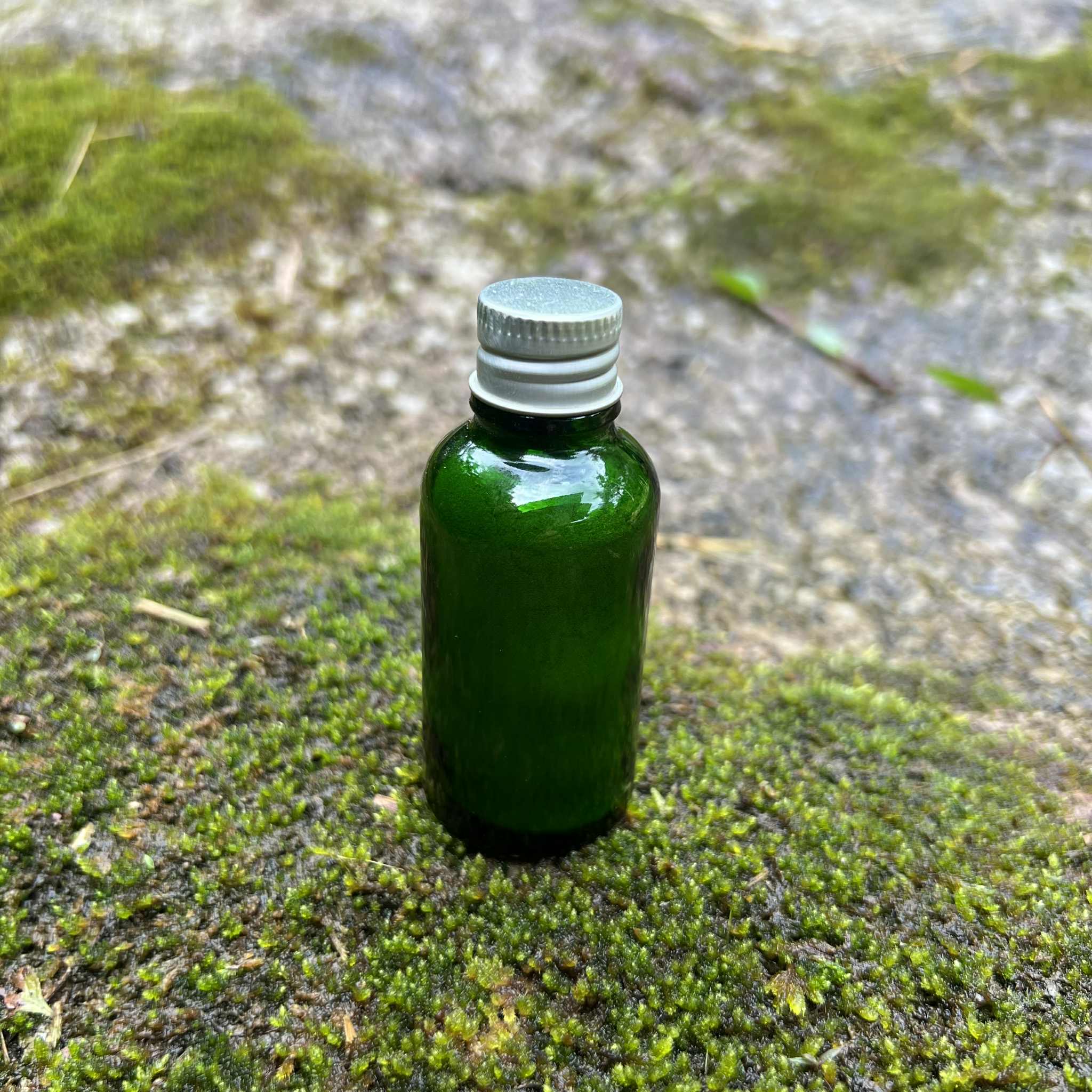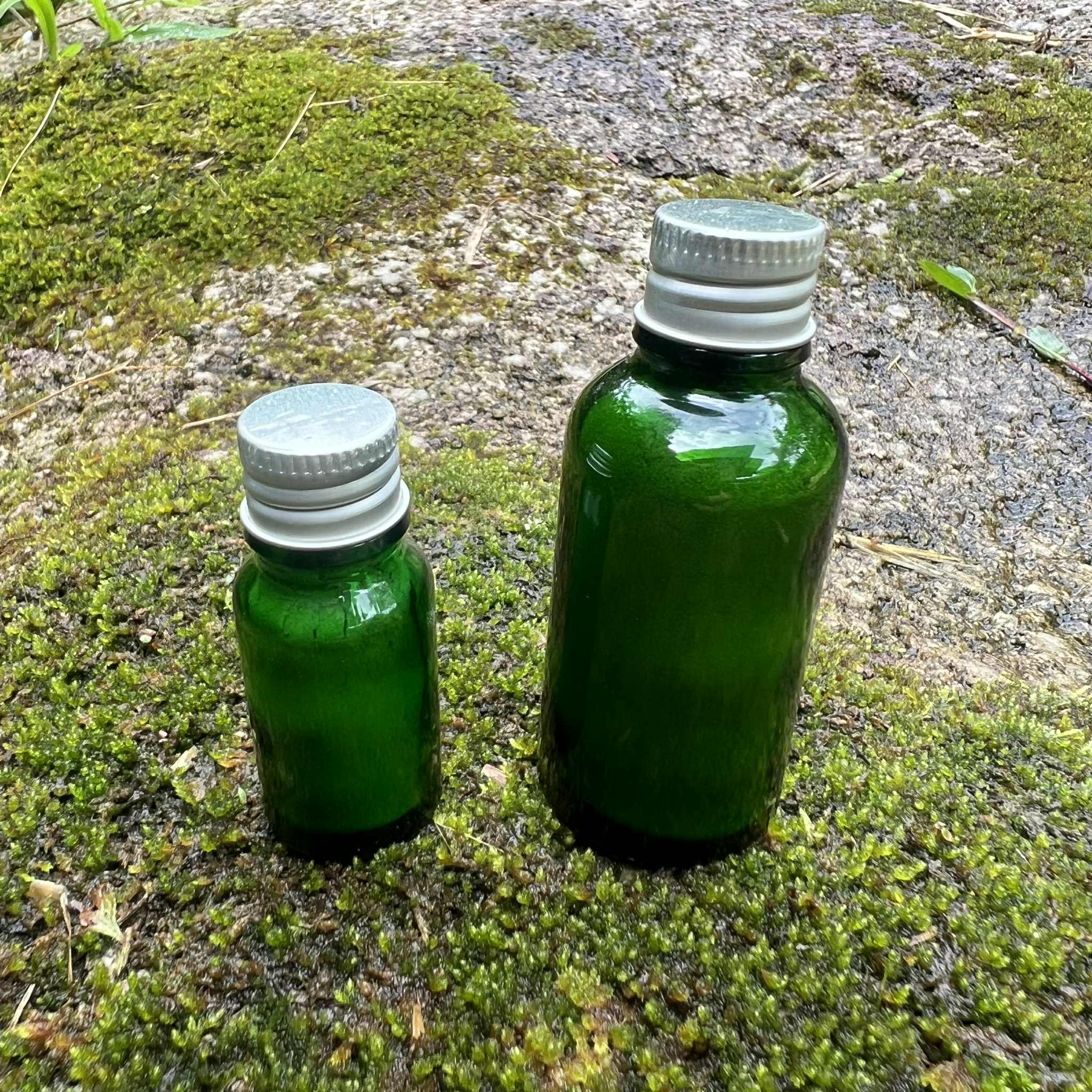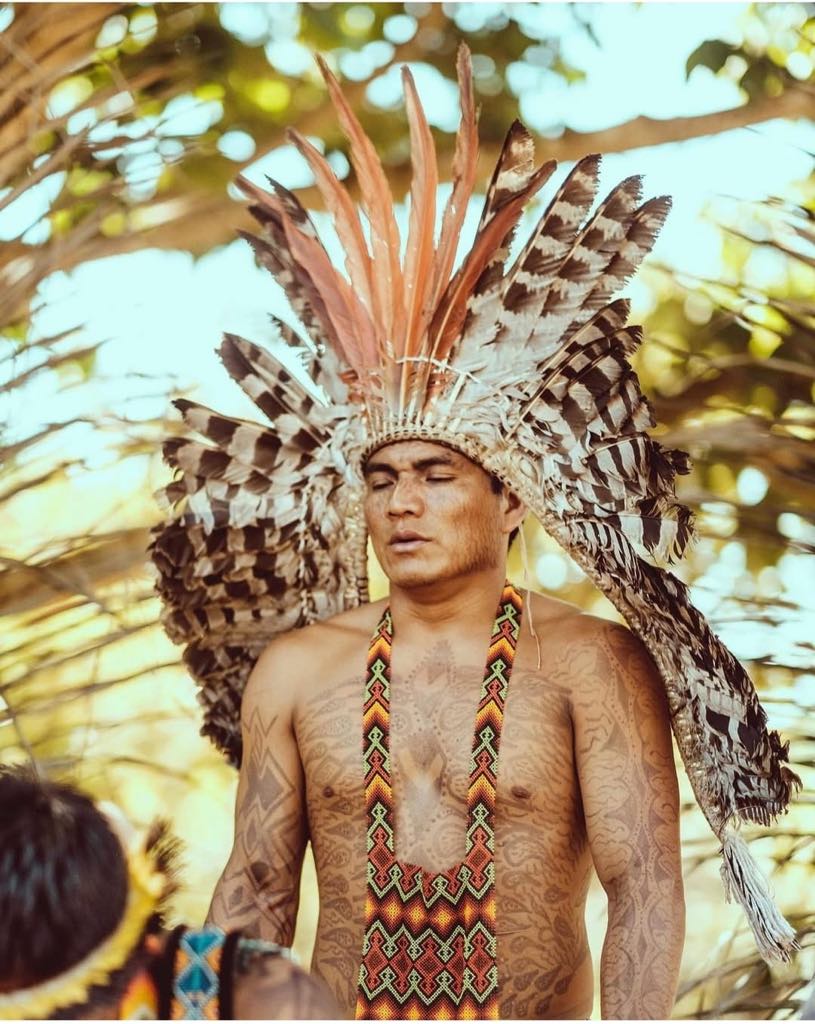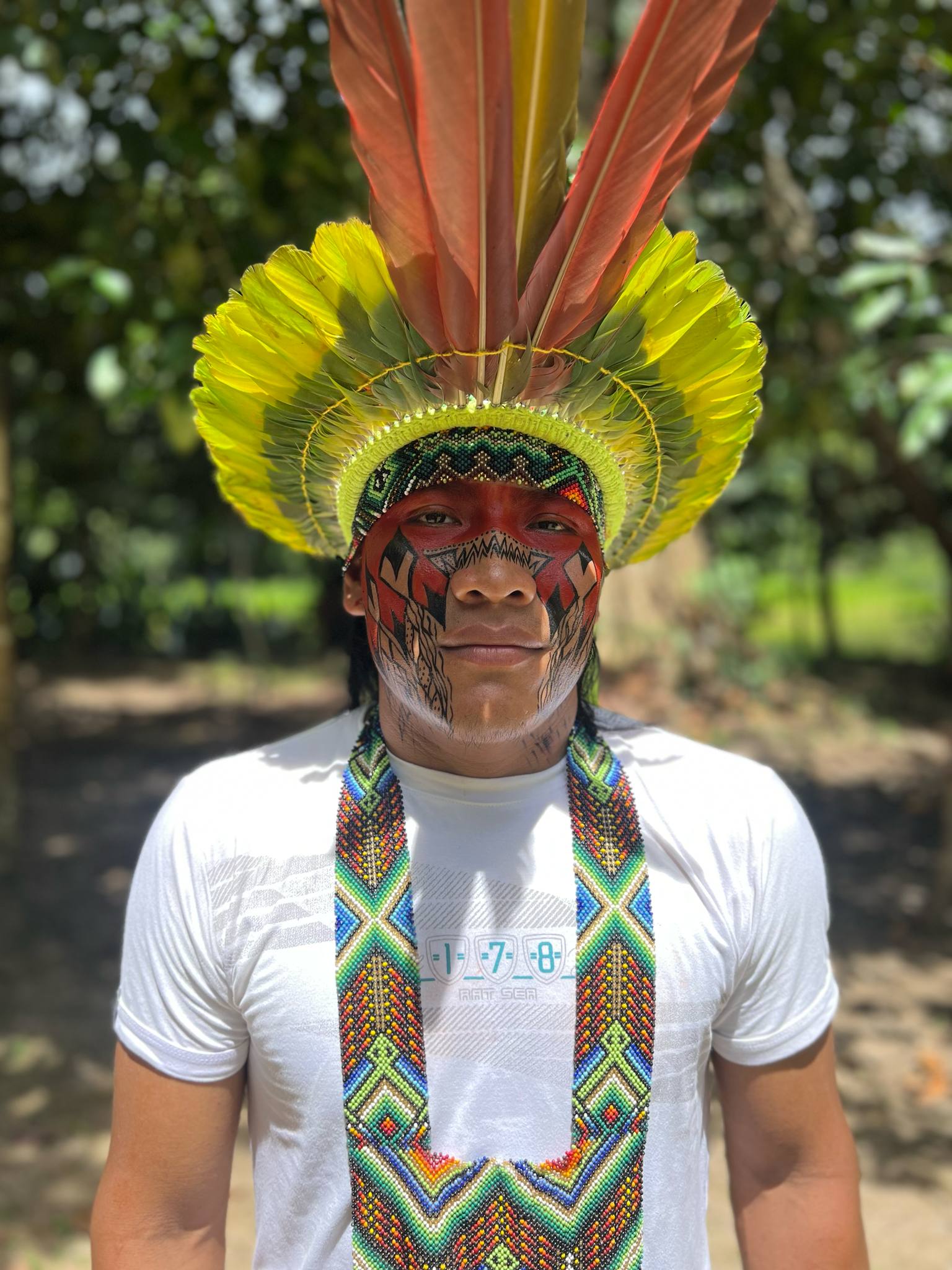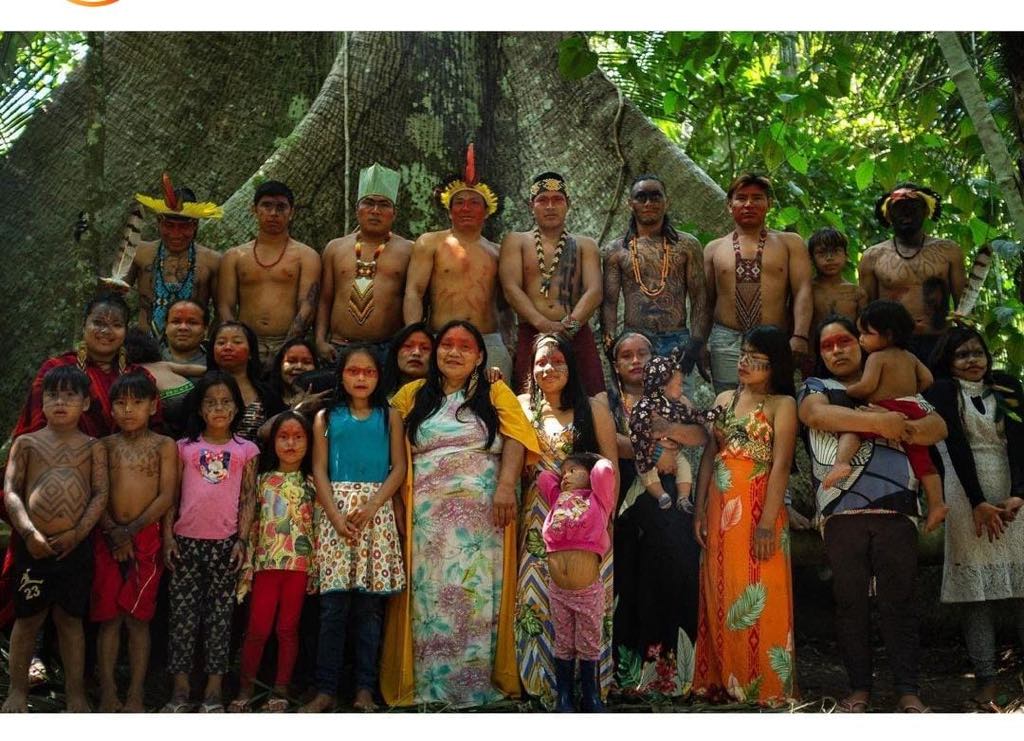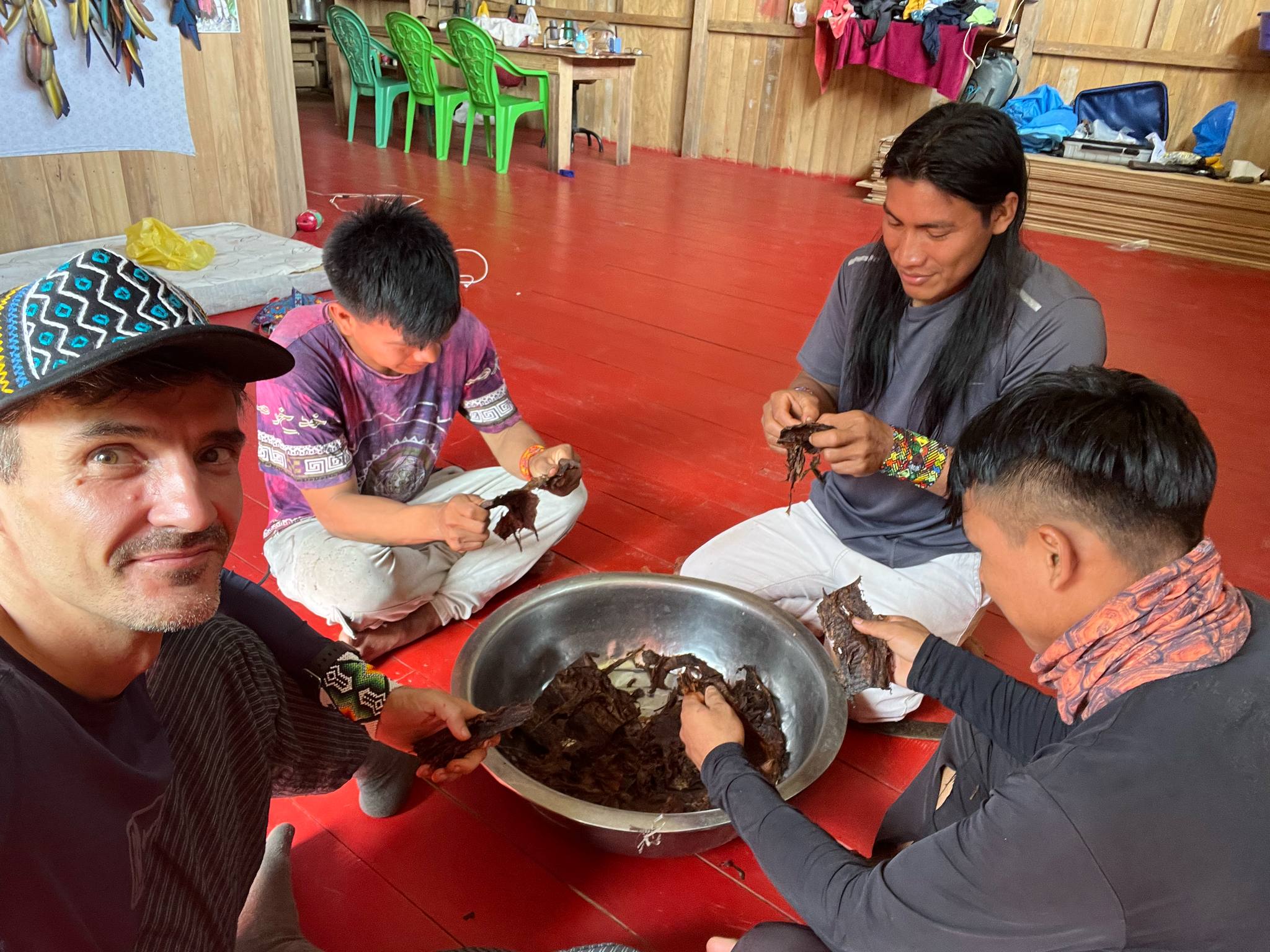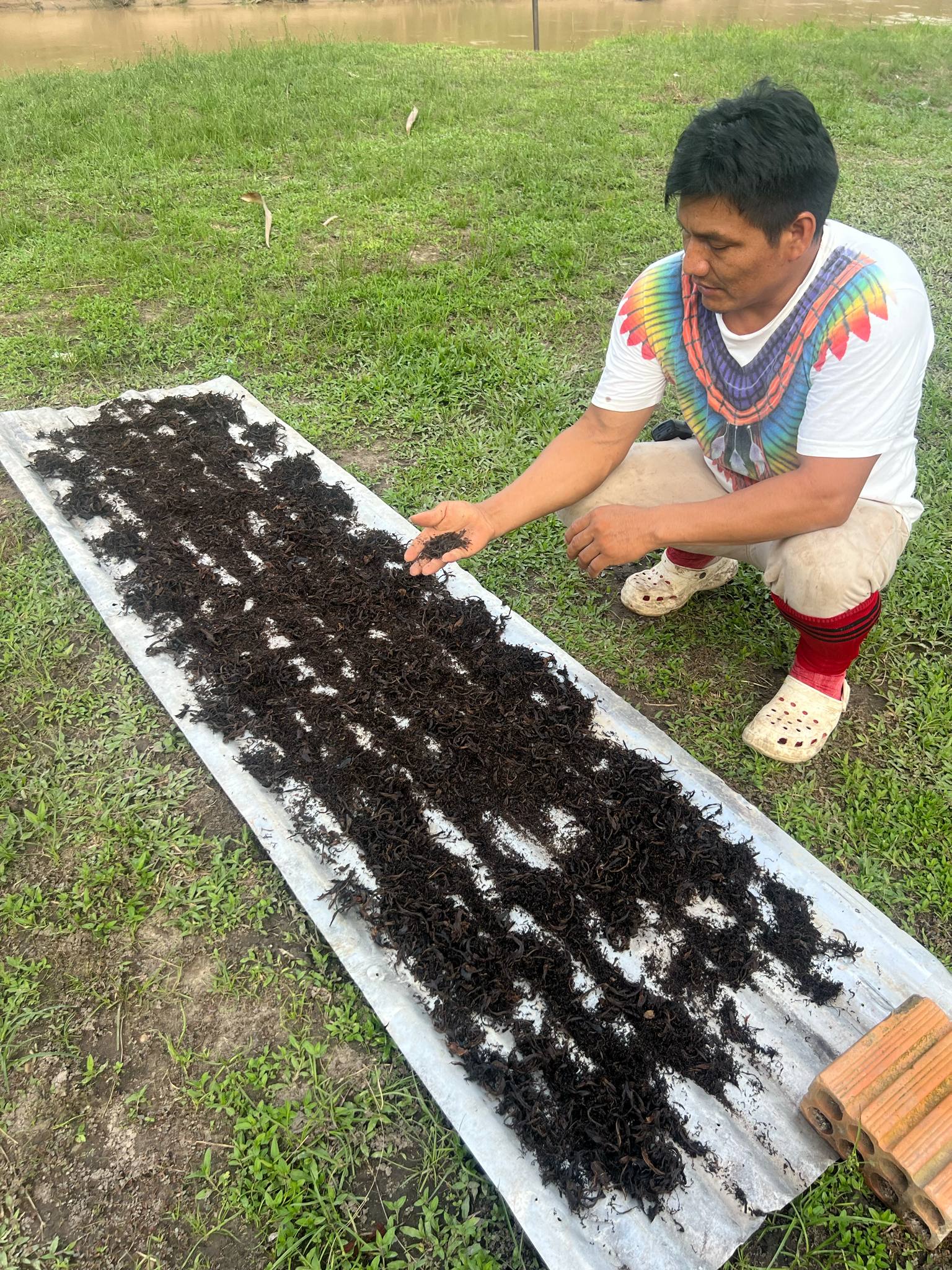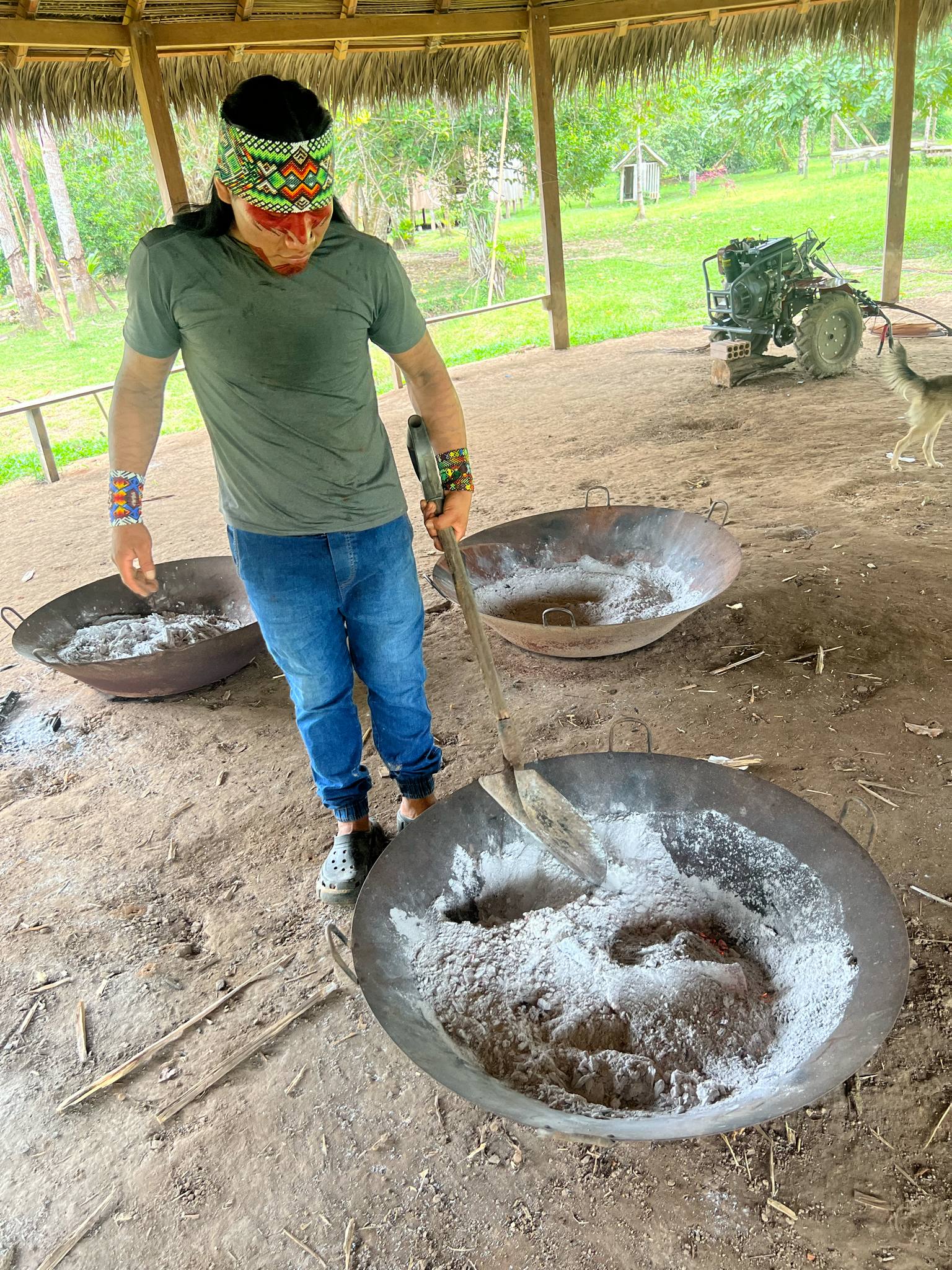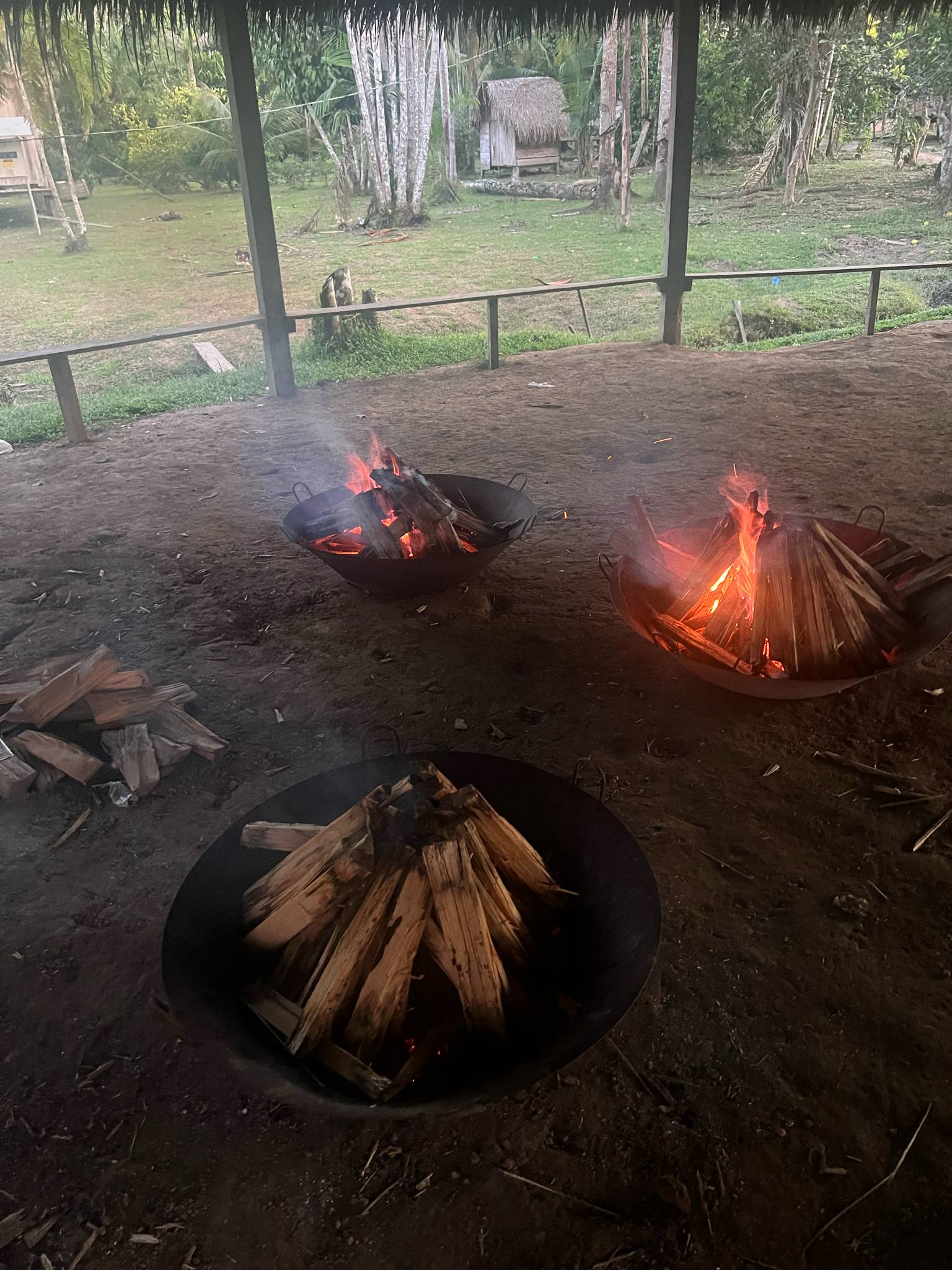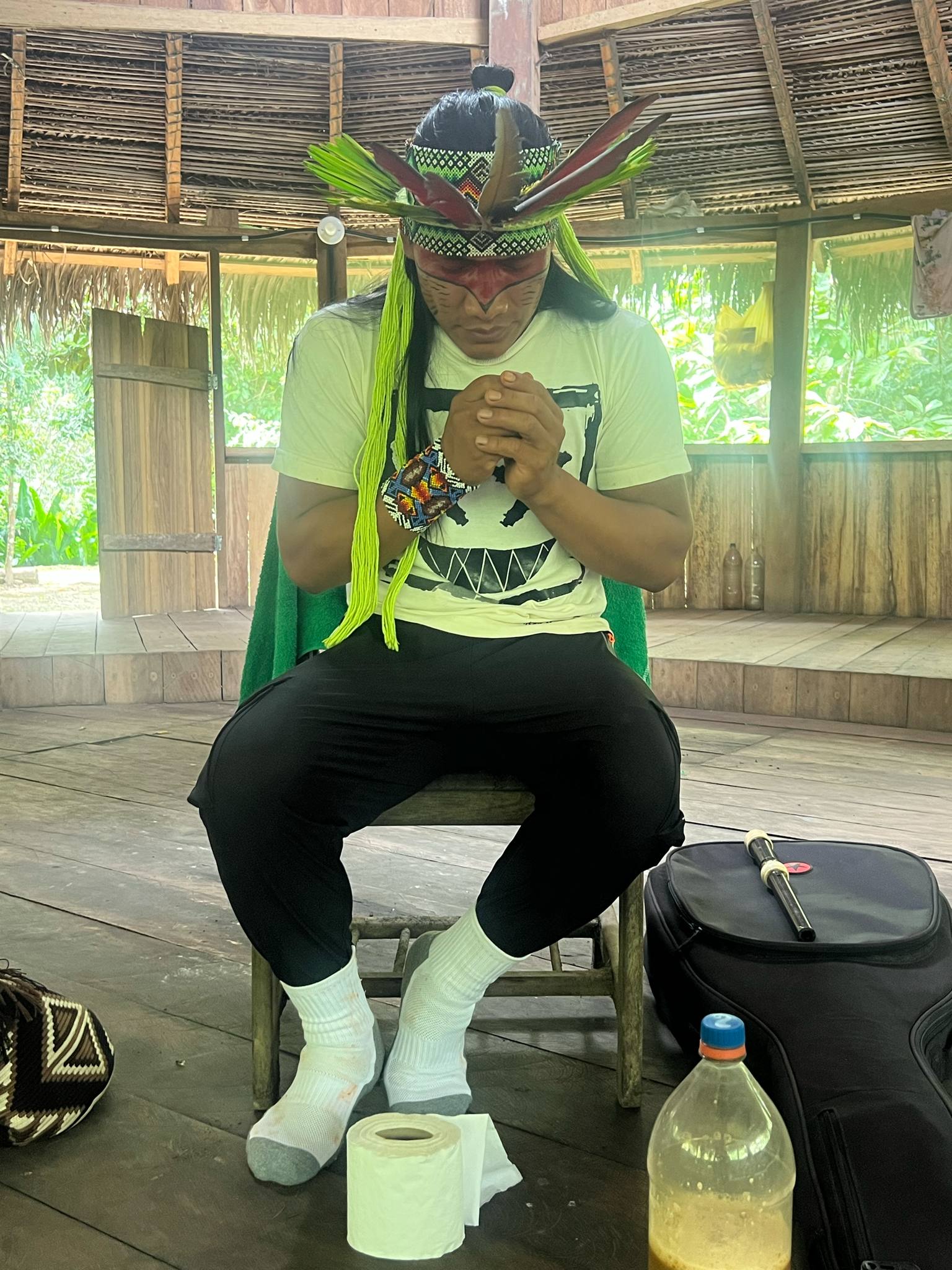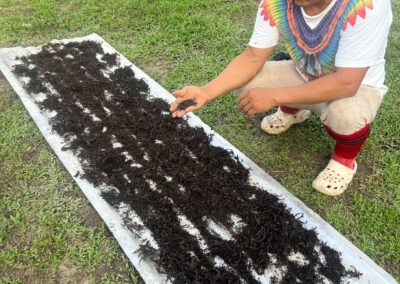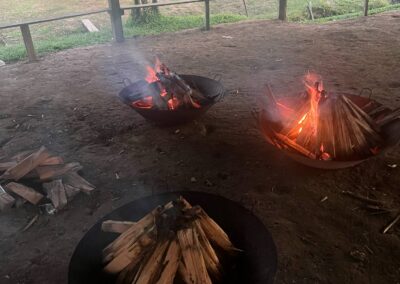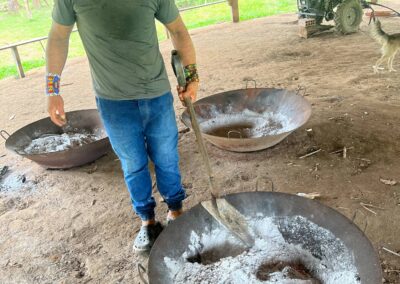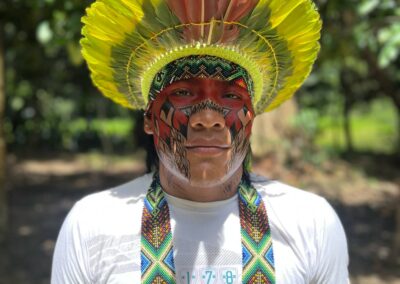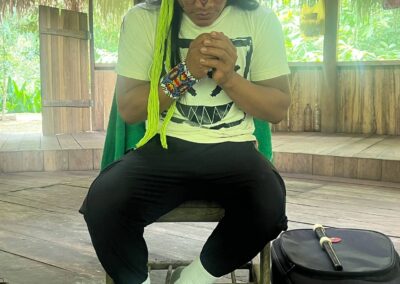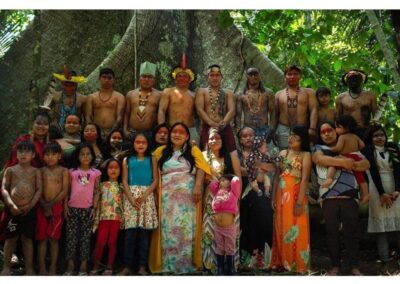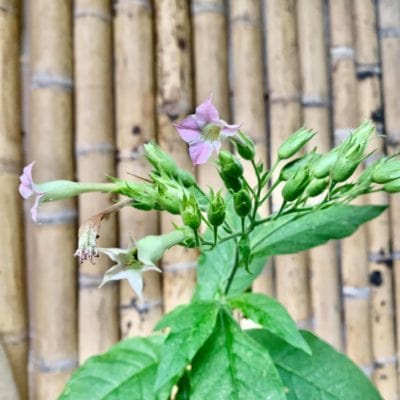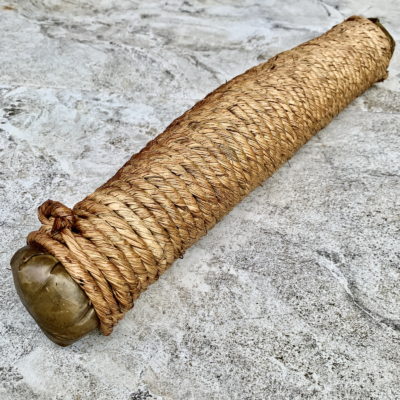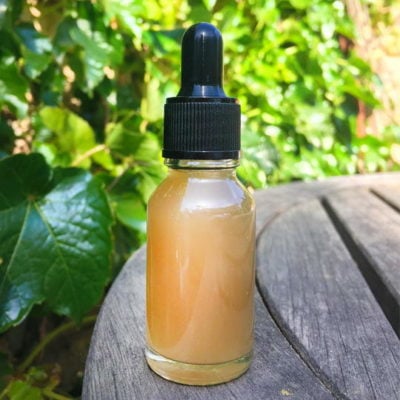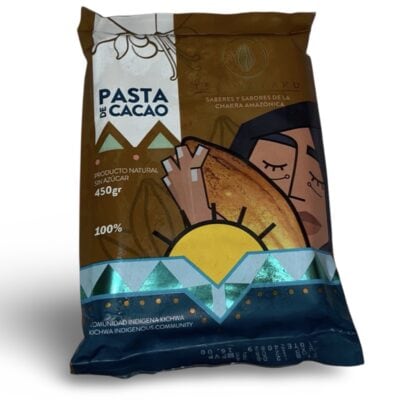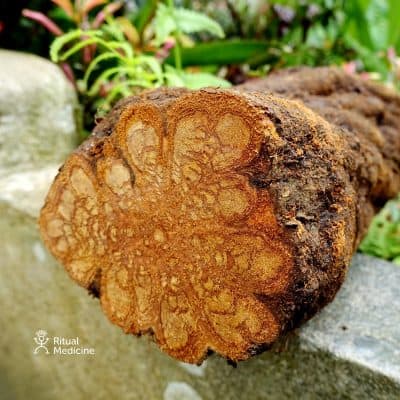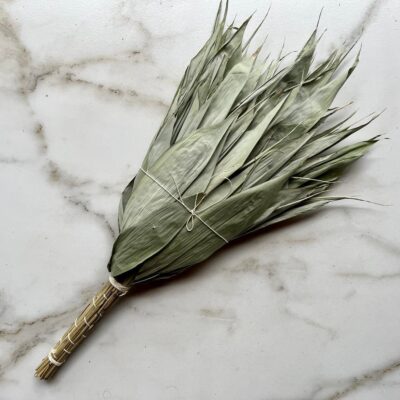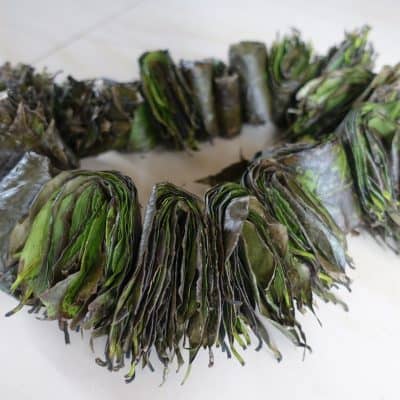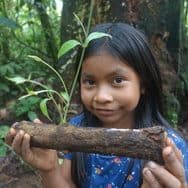Rapé Tsunu Yawanawa Brasil
$24.00 – $59.00
Very fresh traditional ceremonial rapé prepared in April 2025 by Mew and Pekonti Yawanawa, leaders of the Matricha village on river Gregorio, Acre, Brazil. Contains powdered arapiraca tobacco and ashes of the tsunu tree. Dark glass bottle with hermetic metal seal. Read detailed description about this product.
- Shipped fresh from Ecuador with DHL International
- Parcel preparation time is 1-4 workdays
- DHL delivers in 5-10 workdays
- Pay with a credit card, PayPal, bank transfer or Western Union.
Rapé Tsunu from the Yawanawá tribe, Brasil
Rapé Tsunu is part of the Yawanawa tribes' spiritual practice, both during diets and ceremonies and in everyday life. It is a handmade fine powder that combines traditionally grown tobacco without chemical additives and ash from the Tsunu tree. The result is a very sacred medicine that is used to ground ourselves, cleanse our negative energies and to connect to the sacred spiritual forces of nature, also during meditation, prayer and ceremony.
Our Journey of Learning About rapé
We learned about rapé during a 1 month traditional strict diet in the Yawanawa village of Matricha, located about 3 hours upstream by motorized canoe on the Gregorio River in the state of Acre, Brazil. We share the knowledge gained in this short article. We will only talk about this particular rapé that we got to know during our personal visit and when we witnessed the whole process. We do not insist that this is the only way or the only correct information. In other families and in other places, traditions certainly differ. This family, and other members of the Yawanawa tribe, use only and exclusively Tsunu rapé, not any other kind of rapé. In their words, this rapé is sufficient for all kinds of work.
How rapé is made
First you need to buy tobacco, which is grown by specialists in a natural way, without the use of chemicals or preservatives. This is necessary for the tobacco to be pure medicine and to be used in spiritual work or religious ceremonies. The tobacco used by this Yawanawa family is either Tabaco de Moi (tied tobacco, which comes from the state of Acre) or Tabaco Arapiraca (cut tobacco, which comes from the northeast of Brazil).
We wait for a very sunny and hot day. The tobacco is cut into fine slices with a knife and then hand-separated into individual fibers. These are then spread out on a piece of tin, which is placed in the sun and watched to ensure that it does not get wet if a storm comes.
After two days of drying, the tobacco is placed in an iron tube, in which it is hand-crushed to powder by beating it with an iron bar. It is worked in this way for several hours. The powder is also sifted through a cloth sieve to make it as fine as possible.
The second ingredient is prepared by cutting down a Tsunu tree that the family grows around the village. It is left to dry for a period of time, and then split and burnt in a large iron bowl, with no other wood present. This produces white ash, which is then sifted through a cloth sieve.
The two ingredients are mixed by hand in such a proportion that the rapé works properly, i.e. does not pinch the nose too much, and is strong. Thus the rapé tsunu is finished.
Who are the people who make this Tsunu rapé
Who makes the rapé is very important. This is because during the process, this person both guarantees the quality of the rapé and puts their energy into the process, which then shows up during the effects of taking this rapé.
During our visit to the village of Matricha, we made this rapé together with the spiritual leaders of this village, Mew Yawanawa and his brother Pekonti Yawanawa. Mew is a disciple of the now deceased legendary pajé Tata. He has been entrusted with the role of leader of the great ceremonies in the Yawanawa tribe and is considered a very strong carrier of his tribe's tradition. He also has his own school for the youth of the Yawanawa tribe. His younger brother Pekonti has been living in the sacred energies of his tribe since he was a young boy and has undergone many diets including, of course, one with the most sacred plant, Muka.
Importantly, both of these guides use their rape in ceremonies for their tribe and to teach the next generation of the Yawanawa tribe, ensuring the excellence and energetic purity of this medicine.
How to apply rapé
Rapé is a very fine powder that can be blown into both nostrils using a tool designed for this purpose. It very much depends on who blows the rapé in this way, with what breath and what energy they have.
You can easily apply the rapé yourself using the V-shaped Kuripe tool. You inhale, hold your breath, and blow into one of the ends, with the other end attached to your nostril. It's the one you put a little bit of rapé in before. Then you repeat the process at the other nostril.
The second way is that the rapé is applied by another person using the Tepi tool, and they explain how to do it. Before blowing rapé to others, one should learn the basic things about the practice so that helping others will be beneficial.
The amount of rapé applied in this way can vary, from as little as one lentil seed per nostril, or as much as ten times that amount. However, we always learn this medicine gradually, and always in a physically safe space should we accidentally pass out or begin to vomit violently, which can happen with very strong doses.
Last but not least, Yawanawa rapé is taken orally, that is, small amounts eaten or licked. When absorbed through the stomach, the effect is longer and works throughout the body.
How to store Rapé Tsunu by Yawanawa
It is very important to store rapé properly so that it does not lose its strength and lasts a long time. It must be produced only on a very sunny and dry day, when it is put into several hermetically sealed zip-lock bags. After a few days of travel to our Ayahuasca retreat center in the Amazon, it is transferred into glass hermetically sealed containers that are filled to the brim and do not contain air. The glass containers are blackened and stored in a dark, dry place. In this way, the rapé is ready for dispatch at the highest quality.
Dangers of using rapé
It is important to know some information to avoid the negative effects of rapé. Rapé can harm us, if we use it improperly, we can also develop an addiction to it.
Before taking rapé, we first think about why we are taking it and create an intention and prayer for all the good we want to get from it. We look honestly within ourselves to see if it is absolutely essential for us to use rapé at that moment or if it is just an indulgence. Rapé can also be used to thank the Creator for all that we have. After using it, we can evaluate what energy it has brought us and adjust our habit based on that, for example, to skip rapé altogether for a while.
Rapé should always be taken in a completely calm environment so that we can concentrate on its effects. We pay attention, as this medicine teaches us, and go hand in hand in healing our being by consciously helping the energy to spread out and permeate us. We devote ample time to such sessions. It is, of course, very appropriate to chant or listen to sacred songs, such as the Saiti of the Yawanawa tribe, which modulate the effect.
If rapé is used excessively or in a disrespectful way, it can cause various types of illness and ailments. For example, it can cause headaches, stuffy noses, or feelings of bad energy and discomfort. Such sickness can be difficult to treat, and if it reaches its advanced stage, a pajé (shaman) may be needed to cure the ailment, for example by providing a steam bath with certain types of plants.
If rapé is used by a person with a tendency to harm others, rapé can multiply the power of such negative emotions and then cause suffering to its user and other people. Before taking rapé and during a session with it, one should anchor oneself in the energy of love.
Paje Tata, the spiritual leader of the Yawanawa tribe, used rapé once a day, always towards the end of the day at sunset. It is a sacred time for the spirits to speak.
Using Rapé for Spiritual Work
The Yawanawá Tribe uses rapé during the preparation of their herbal medicines, for example, before collecting leaves for steaming or bathing patients or students.
It is also taken before singing Saiti songs, or before playing the guitar, to deepen the connection and to better learn how to sing or play properly.
When stories from mythology and ancient history are shared, rapé is used both by the one who is transmitting the stories and by the listener so that the energy is properly transmitted and received.
Rapé is of course also used during Uni (Ayahuasca) medicine ceremonies, at the very beginning before drinking. Then also during the ceremony.
Rapé is not mandatory for any of the activities and everyone has their own way of working with the energies. Sometimes, for example, it may be preferable not to take any rapé during an Ayahuasca ceremony.
Diet when taking rapé
If we are making love to our wife or husband, I have been advised by the Yawanawa not to take rapé at this time. We have seen rapé used during pregnancy. We have witnessed rapé being used by a pregnant woman in her sixth month by blowing into her nostrils. This was on the grounds that the energy of this rapé works primarily in the head area and not in the abdomen. However, this was a smaller dose and only once during the day.
Why we sell rapé
Buying rapé from the indigenous people of the Amazon is an important aid that motivates the tribes to maintain and strengthen their sacred traditions. It also helps them financially so that they can devote themselves fully to passing on their rainforest wisdom to the younger generation and so that these teachings do not become extinct. The indigenous people are the protectors of the Amazon, and with these funds they can continue to leave their forest undisturbed and act as activists.
It is of great benefit to those who purchase this medicine from the natives and incorporate it into their spiritual practice in the right way. It allows for personal healing and the acquisition of good spiritual qualities. Through it we can learn directly from the spiritual forces of nature, which will then bring us harmony in our relationship with our loved ones and our reality. It can warn us of evil and correct stumbling blocks on our path. It is thus a tool of self-improvement and a personal teacher, our great friend and older and wiser brother from the plant kingdom.
